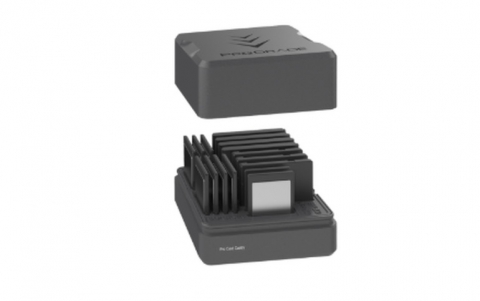
Hollywood cracks down on DVD chipmakers
The Motion Picture Association of America said Monday that it has sued two chipmakers for selling DVD chips to companies that are flouting copy-protection rules.
The lawsuit is the second to target DVD hardware makers and is part of a new campaign by the trade association to crack down on the spread of disc players that deviate from a Hollywood-approved system of copy control features.
According to the MPAA, Sigma Designs in Milpitas, Calif., and Taiwan-based MediaTek each have sold DVD-player chips to companies that offer features in their products that aren't allowed under the general DVD technology license. That act violated the license the chipmakers had to sign to build the DVD chips in the first place, the trade association said.
"Responsible corporate citizens honor the contracts they sign," MPAA Chief Technology Counsel Dan Robbins said in a statement. "There is no leniency for irresponsible companies that seek to circumvent the system and operate outside of the law."
The lawsuits come as part of an expanded MPAA enforcement campaign aimed at hardware makers, following some success in blocking the spread of commercial DVD-copying software. The new drive stems in part from the creation of an in-house lab that the MPAA uses to study and disassemble DVD hardware, among other products, to ensure that it complies with Hollywood requirements.
But unlike earlier lawsuits focused on the spread of DVD-copying software, the chip-focused cases rest on the contracts used to control DVD technology itself instead of on copyright law.
DVD-reading technology is controlled by a Hollywood-affiliated technology group called the DVD Copy Control Association, or DVD CCA. Any chipmaker or DVD player that wants the rights to unscramble the digital locks put on commercial DVDs must agree to a specific set of contract terms approved by the big studios.
Those contracts include provisions that bar the creation of DVD-copying devices. They also require DVD makers to ensure that any output plugs--such as those that carry a signal from a DVD player to a television or potentially to a recording device--are protected enough, such that high-quality copies can't be made.
An MPAA spokesman said the group's new lab had found devices with unprotected outputs that included components from Sigma and MediaTek. The lawsuits against both companies are based on breach of the contract with DVD CCA.
A representative for Sigma could not be reached for comment.
Last month, the MPAA won a preliminary injunction against Fremont, Calif.-based ESS Technology, which allegedly sold DVD chips to a company that was making a DVD-copying device.
From News.com


















